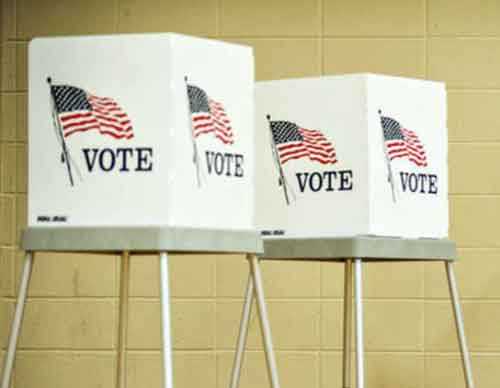NEW YORK-It's just a few weeks until the Iowa Caucus and New Hampshire primary and the Republican nomination fight is, once again, going through some changes. But, one thing that has remained constant through the past few months is that Mitt Romney has been at or near the top. One reason, however, the former Governor of Massachusetts may not have quite sealed the deal with voters yet is that, even after running for Republican nomination in 2008, people may not yet be sure who he is.
Among all Americans, two in five like Mitt Romney as a person (40%), over one-third (36%) say they like his track record as governor and one-third (33%) like his political opinions. But over one-third of U.S. adults also say they are not sure about Mitt Romney as a person (34%), not sure about his track record as governor (38%) and not sure about his political opinions (34%).
These are some of the results of The Harris Poll of 2,499 adults surveyed online between November 7 and 14, 2011 by Harris Interactive.
Among Republicans almost three in five (58%) like Mitt Romney as a person, half (49%) like his track record as governor and 57% like his political opinions. Among Conservatives, these numbers drop a little. Just half of Conservatives like Mitt Romney as a person (49%) and like his political opinions (48%) while just two in five Conservatives like his track record as governor (39%).
When given some statements about Mitt Romney, again there is a little bit of the unknown. Just over half of Americans (54%) say Mitt Romney is an intelligent person with one-third (32%) saying they are not sure and while half (49%) believe his business experience would be an asset, again one-third (32%) are not sure. Romney has also been charged with “flip-flopping” and 44% of Americans agree that his stance on issues depends on who he is talking to, not his core convictions, with over one-third (36%) not sure about this.
However, just 20% of Americans say Mitt Romney lacks experience and is not qualified to be president with half (48%) disagreeing with that statement but, again, one-third (32%) are not sure. The issue of religion has also been raised and while 52% of Americans say Mitt Romney being Mormon is not an issue, one-quarter say it is (23%) and the same number are not sure (25%). The one thing that evenly divides Americans is if he inspires confidence personally. One third of Americans think Mitt Romney does (35%), one third says he does not (33%), and one-third are not sure (32%).
Among Republicans, two-thirds believe Mitt Romney is intelligent (69%) and that his business experience would be an asset (67%), while over half (53%) say he inspires confidence personally. Just over one-quarter (27%) say his being Mormon is an issue but two in five Republicans (41%) say his stance on issues depends on who he is talking to and not his core convictions. His numbers are a little weaker among Conservatives as just three in five say he is an intelligent person (61%) and that his business experience is an asset (61%) with less than half (46%) agreeing he inspires confidence personally. Slightly over two in five (43%) agree his stance on issues depends on who he is talking to and not his core convictions while one-quarter (26%) say his being Mormon is an issue.
Looking at Mitt Romney’s political ideology, one in ten Americans (8%) say he is too liberal, compared to 15% of Republicans and one in five Conservatives (20%). On the flip side, 16% of U.S. adults say Mitt Romney is too conservative. One-third of Americans (32%) say he is neither too liberal nor too conservative but almost half (45%) are not sure, including one-third of Republicans (34%) and two in five Conservatives (39%).
If Mitt Romney was the Republican nominee, one-third of Americans (33%) would vote for him, 38% would not and 25% are not sure. Two-thirds of Republicans (65%) would vote for him, but just over half of Conservatives (57%) say the same. Two in five Independents (40%) would vote for Mitt Romney while one-third would not (34%) but among Moderates two in five would not vote for him (39%) while 27% would.
So What?
With the Republican primary this year, much can change in a week, let alone three weeks, so it’s still anyone’s guess what will actually happen in Iowa and New Hampshire. But, one thing is certain. For someone who in his second run for the Republican nomination, Mitt Romney has not done a great job of defining who he is and what he stands for. Others have defined him and that may be one of the main reasons he has not been able to run away with the nomination, even though he’s been the “front-runner” for almost the whole of 2011.
This Harris Poll was conducted online within the United States between November 7 and 14, 2011 among 2,499 adults (aged 18 and over). Figures for age, sex, race/ethnicity, education, region and household income were weighted where necessary to bring them into line with their actual proportions in the population. Propensity score weighting was also used to adjust for respondents’ propensity to be online.
All sample surveys and polls, whether or not they use probability sampling, are subject to multiple sources of error which are most often not possible to quantify or estimate, including sampling error, coverage error, error associated with nonresponse, error associated with question wording and response options, and post-survey weighting and adjustments. Therefore, Harris Interactive avoids the words “margin of error” as they are misleading. All that can be calculated are different possible sampling errors with different probabilities for pure, unweighted, random samples with 100% response rates. These are only theoretical because no published polls come close to this ideal.
Respondents for this survey were selected from among those who have agreed to participate in Harris Interactive surveys. The data have been weighted to reflect the composition of the adult population. Because the sample is based on those who agreed to participate in the Harris Interactive panel, no estimates of theoretical sampling error can be calculated.
These statements conform to the principles of disclosure of the National Council on Public Polls.
The Harris Poll® #127, December 14, 2011
By Regina A. Corso, SVP, Harris Poll, Public Relations and Youth Research, Harris Interactive
Source: Harris Interactive






